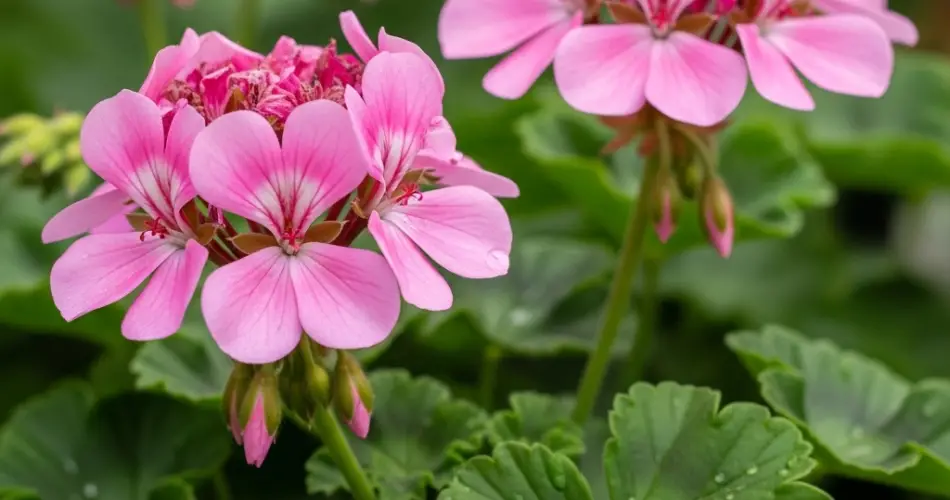Geraniums are popular flowering plants known for their vibrant blooms and attractive foliage. Whether planted in pots, hanging baskets, or garden beds, they add a burst of color and beauty to any outdoor or indoor space. However, to keep your geraniums healthy, thriving, and blooming continuously, they need more than just sunlight and water. Providing them with the right nutrients is essential—especially if you’re aiming for lush growth and an abundance of flowers.
Using organic fertilizer is a safe, eco-friendly way to nourish your plants while improving soil health over time. Here’s a complete guide to choosing the best organic fertilizer for geraniums and how to apply it for optimal results.
Why Choose Organic Fertilizer for Geraniums?
Organic fertilizers are made from natural sources such as compost, seaweed, fish emulsion, and animal manure. Unlike synthetic fertilizers, which can cause chemical buildup and harm beneficial microbes in the soil, organic fertilizers feed both the plant and the soil.
Benefits of using organic fertilizer on geraniums include:
-
Gentle nutrient release that reduces the risk of overfeeding
-
Improved soil structure and moisture retention
-
Encouragement of beneficial soil life, such as earthworms and microbes
-
Reduced environmental impact
Organic fertilizers also support longer-term plant health, helping your geraniums develop strong roots, abundant foliage, and continuous blooms throughout the season.
Key Nutrients for Geraniums
Before choosing a fertilizer, it’s important to understand what nutrients geraniums need:
-
Nitrogen (N): Supports leaf and stem growth. Too much nitrogen, however, can lead to lots of leaves and fewer flowers.
-
Phosphorus (P): Encourages blooming and root development.
-
Potassium (K): Strengthens the plant overall and helps resist diseases.
A balanced formula or one slightly higher in phosphorus (middle number) is ideal for flowering geraniums. Look for organic blends with an N-P-K ratio like 4-6-4 or 3-5-3.
Top Organic Fertilizer Options for Geraniums
1. Compost
Homemade or store-bought compost is one of the best all-around fertilizers for any plant, including geraniums. Compost improves soil texture, boosts microbial activity, and provides a gentle, steady release of nutrients.
-
How to use: Mix compost into the planting hole when transplanting or top-dress the soil every 4–6 weeks. A 1-inch layer around the base of the plant works well.
2. Fish Emulsion
Fish emulsion is a liquid fertilizer made from processed fish. It’s rich in nitrogen and trace elements, making it ideal for promoting healthy foliage and early plant development.
-
How to use: Dilute according to the label and apply every 2–3 weeks during the growing season. Use as a soil drench or foliar spray.
3. Seaweed or Kelp Extract
Seaweed-based fertilizers contain potassium, trace minerals, and natural growth hormones. While they don’t provide much nitrogen or phosphorus, they boost flower production and overall plant vigor when combined with other fertilizers.
-
How to use: Apply every few weeks as a foliar spray or mix into watering routines. Combine with fish emulsion for a well-rounded feeding.
4. Worm Castings
Worm castings (vermicompost) are a natural byproduct of earthworms. They’re full of beneficial microbes, nutrients, and enzymes that help plants absorb nutrients efficiently.
-
How to use: Mix into potting soil or sprinkle around the base of established plants. Repeat every couple of months.
5. Organic Flowering Plant Fertilizer Blends
Look for organic granular fertilizers formulated specifically for flowering plants. These typically contain a balanced mix of nutrients along with bone meal, feather meal, or alfalfa meal.
-
How to use: Apply according to the package instructions, usually every 4–6 weeks. Scratch gently into the soil and water thoroughly after applying.
When and How Often to Fertilize Geraniums
-
Start feeding in early spring as new growth appears.
-
Continue fertilizing every 2–4 weeks during the growing season (spring through fall).
-
Stop or reduce fertilization in winter when geraniums go dormant, especially if overwintered indoors.
Be careful not to over-fertilize. Too much nitrogen can lead to lush green leaves but few flowers. Always follow product directions and adjust feeding frequency based on plant performance.
Tips for Healthy, Lush Geraniums
-
Use well-draining soil rich in organic matter to support root health.
-
Water regularly but don’t overwater. Let the top inch of soil dry out before watering again.
-
Deadhead spent blooms to encourage continuous flowering.
-
Pinch back stems to promote bushier growth and more flowering branches.
-
Provide 6–8 hours of sunlight daily, especially for outdoor geraniums.
Final Thoughts
Choosing the best organic fertilizer for your geraniums can make a big difference in their health and performance. Whether you prefer compost, liquid feeds like fish emulsion and seaweed extract, or ready-to-use granular blends, the key is consistent, balanced nutrition. With the right organic care, your geraniums will reward you with lush leaves and vibrant blooms all season long—naturally and sustainably.



